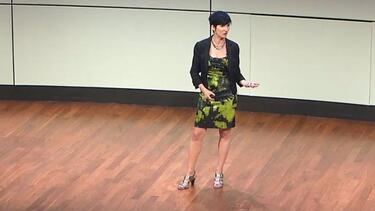All Insights Articles
How Should We Think about the Debt?
David Wessel talks about the complex task of helping policymakers and the public to take a balanced, long-term view of spending and the deficit.

What’s the New Look for the Fashion Industry?
Former CEO William McComb on how he downsized the fashion conglomerate Liz Claiborne, and what his strategy may foretell for the fashion industry.
How Do We Persuade?
Yale SOM’s Zoë Chance explains how to make the most of our natural ability to influence and persuade others.

What Makes a Museum Successful?
Daniel Weiss ’85, president of the Met, discusses the challenges of changing with the times while preserving the past.

What’s at Stake on Social Media?
Sprinklr CEO Ragy Thomas discusses how social media is reshaping companies.

Could Crowdfunding Reshape Entrepreneurship?
Yale’s Olav Sorenson explains how crowdfunding can change entrepreneurship and what’s necessary for that to happen.

How Can Marketers Get a Message through the Noise?
Linda Kaplan Thaler, former chairman of Publicis Kaplan Thaler, says that to make an impact, advertisements must be funny, concise, and intensely focused.
Can a Better Burger Make a Difference?
Seth Goldman ’95 discusses his company’s effort to transform the way we eat protein.

What Comes Next for Europe?
Yale Insights spoke with professors David Bach and Andrew Metrick about the likely short-term and long-term implications of “Brexit.”

How Do You Enforce Antitrust Law in a Global Marketplace?
Professor Fiona Scott Morton, the former chief economist in the Antitrust Division of the U.S. Department of Justice, on the state of global competition law.
